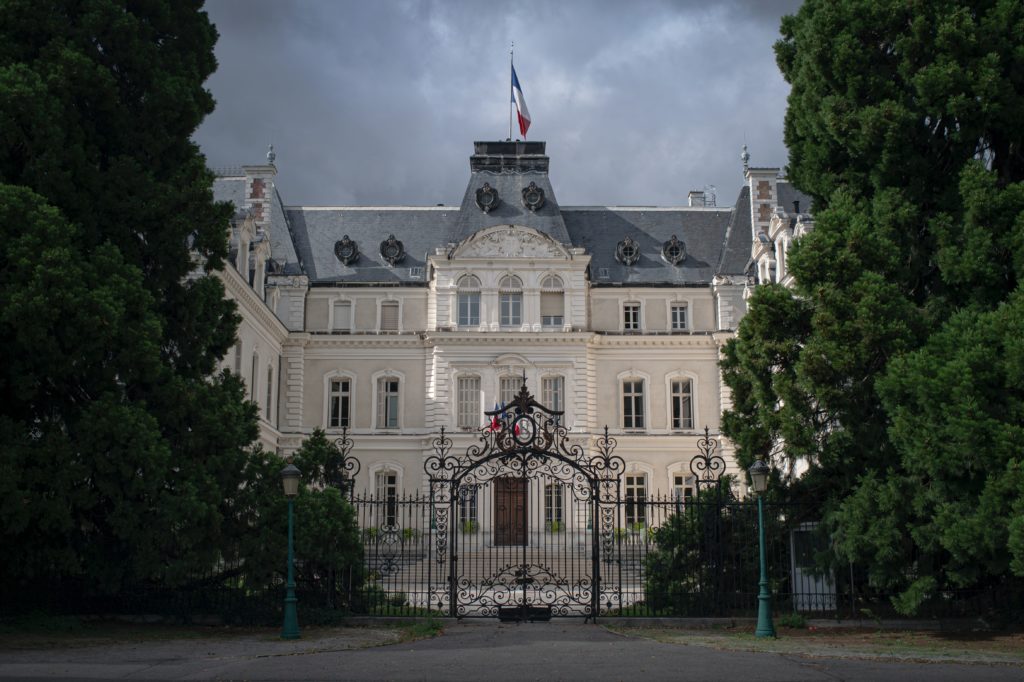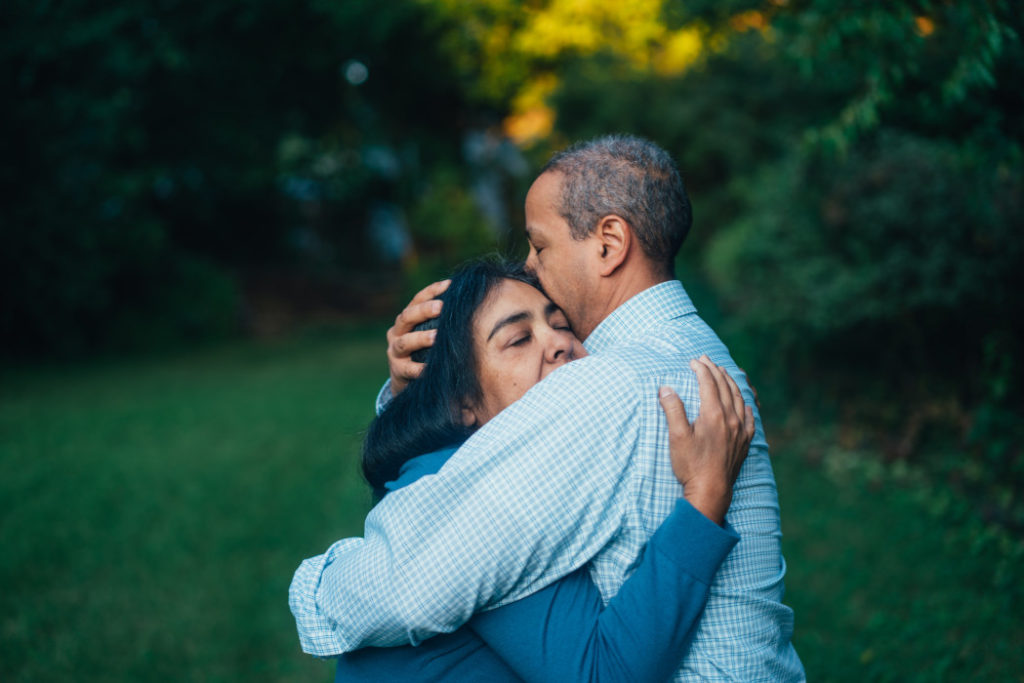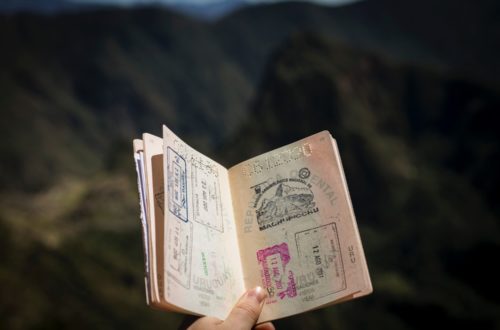Is reuniting with your family abroad your number one priority if you relocated without them?
Maybe you needed to settle first and make sure your situation would be adequate for your loved ones. Maybe you wanted to wait until the end of the school year for your children to join you.
For many different reasons, expats choose the France family reunion visa for their spouse and kids to join them after.
There are a few things you need to know before deciding to relocate separately.
This post will also help you navigate this lengthy process and put all the chances on your side for your family to get their visa.

Table of Contents
What is the France family reunion visa?
Some facts about the France family reunion visa
A family reunion is one of the first motives for immigration into the EU according to a report from the European Commission¹. In 2017, 472,994 people were admitted to EU soil for this reason. This represents 28% of the first request resident permit emitted.
In France, according to the 2019 French Ministry of the Interior statistics, 12,066 France family reunion visas were granted.
Who does it apply to?
It applies only to non-EU citizens (both the person already in France – the applicant – and the joining family members), except non-EU citizens in the below situation as specific processes apply:
- 10-year residence card permit holders (Resident longue durée-UE )
- Talent passport permit holders
- Seconded-employees (Salarié détaché)
- Apatrides or refugees (family reunification process)
Exceptions:
Most non-EU citizens’ family reunion process is based on the Ceseda². However, some countries signed specific bilateral agreements with France that completed the Ceseda and introduced some changes.
This mainly applies to African countries that were ex-French colonies (Algeria, Benin, Burkina Faso, Cameroun, Central Africa, Congo-Brazzaville, Ivory Coast, Gabon, Mali, Morocco, Mauritania, Niger, Senegal, Togo and Tunisia).
Also, the bilateral agreement with Algeria³ overwrites the Ceseda and is the only reference applicable to Algerian citizens.
Which family members can get it and how?
In France, the family reunion process applies only to married spouses and under-aged children. Other relatives such as unmarried spouses or parents cannot come to France under the family reunion status (le regroupement familial).
There are two steps for the family reunion request:
1- The authorisation request from France from the initial visa holder
2- The entry visa request for the joining family at the French consulate abroad

The France family reunion visa requirements
For the initial visa holder
The expat that relocated initially must meet three requirements. They are the condition to get the family reunion authorisation from the French Prefecture before the family members can request the visa are:
- Stability of residence in France: the initial visa holder must have a valid residence permit for a duration of a minimum of 12 months AND have resided legally in France for a minimum of 18 months before submitting the France family reunion visa request at OFII.
- Sufficient income (does not take into account any subsidies the family may get⁴):
| Family size | Income required in 2021 |
| 2 or 3 | Average of the French minimum salary (SMIC) over the past 12 months before the request (€ 1,231) |
| 4 or 5 | Average of € 1,335 over the 12 months before the request |
| 6 or more | Average of € 1,456.77 over the 12 months before the request |
Provide decent housing for the family meeting the legal requirements of decency and size ⁵ based on family size:
| Number of people | 2 | 3 | 4 | 5 | 6 | 7 | 8 or more |
| Zone A & A bis | 22 m² | 32 m² | 42 m² | 52 m² | 62 m² | 72 m² | 82 m² + 5m² per extra person |
| Zone B1 & B2 | 24 m² | 34 m² | 44 m² | 54 m² | 64 m² | 74 m² | 84 m² + 5m² per extra person |
| Zone C | 28 m² | 38 m² | 48 m² | 58 m² | 68 m² | 78 m² | 84 m² + 5m² per extra person |
Zone A bis et A: Paris and many cities of Ile de France, Cote d’Azur and near the Swiss border
Zone B1 and B2: Many cities of more than 50 000 people, other cities of Ile de France, Corsica, seaside cities or near borders.
Zone C : The rest of the country
Type of housing accepted as an example:
- Rentals under your name or your employer’s (social rentals requests will not be approved by social housing landlords without the family already residing in France)
- Sublet, with the owner written approval
- Free accommodation
- Owned property
- House-share

For the joining family members
The spouse
The joining spouse must meet specific requirements to be able to apply for the France family reunion visa:
- The spouse must be over the age of 18 (at the time of the OFII file submission)⁶
- You must be married under the official marriage local process
- Same-sex spouses can apply since the 17 May 2013 French law, even if their marriage was contracted abroad before that date as long as it was recognized as an official marriage in this country.

In January 2021, 29 countries authorize same-sex marriages:
| Argentina | Finland | Netherlands |
| Australia | France | Portugal |
| Austria | Germany | Spain |
| Belgium | Ireland | South Africa |
| Brazil | Island | Sweden |
| Canada | Luxembourg | Taiwan |
| Colombia | Malta | United Kingdom |
| Costa Rica | Mexico (some states) | United States |
| Denmark | Norway | Uruguay |
| Ecuador | New-Zealand |
TIP: The marriage may have been contracted in France during a short stay of the future spouse while the initial permit holder was already residing in France.
Mademoiselle Guiga from Expat in France
The children
The joining children must also meet specific requirements to be able to apply for the France family reunion visa:
- Children must be under the age of 18 (at the time of the OFII file submission) ⁶
- Adopted children should be adopted under the local legal filiation
- Can be the child of either of the two spouses (initial visa holder and/or joining spouse) as long as the legal parental authority is recognized
Family members already residing in France are excluded from the family reunion process⁷, apart from some exceptions.

The France family reunion process
The authorisation request at OFII
Prepare your documentation⁸
Translations and legalisations
The authorisation request should be done in France by the initial permit holder wanting his/her relatives to join in France.
Some documents can be long to obtain and to be legalised, so it is advised to start preparing your file before meeting the 18 months stable residence criteria.
The French administrations require some legal documents established by foreign entities or administrations to be apostilled or legalised. In either case, this stamp certifies that the document is official. Some countries have bilateral agreements preventing their citizens from the need for apostille or legalization.
Make sure the apostille or the legalisation is required for every document listed in this post for your country. Check out the Recap legalization table attached. On page 1, the documents that require apostille or legalisation are listed and on page 4, the information per country:
- D for Dispense: Exemption
- L for Legalisation: Legalization required
- A for Apostille: Apostille required.
The best would be to have your file ready when you reach the 18-month duration if possible in your situation. Unfortunately, it is common to have extended delays in the family reunion authorisation from the Prefecture.
You should submit your family reunion request at your local OFII (Office Français de l’Immigration et de l’Intégration) with the following documents ⁸:
- The filled cerfa form nº11436*05 including the Annexe with the backup documents provided with the request ticked
Valid resident permit of the initial permit holder or the renewal request receipt (récépissé de demande de renouvellement)
All the original documents established in another language than French must be provided together with French translations by a sworn translator by a French court of Appeal)
Proofs of civil status
- Marriage certificate and
- Birth certificates for every applicant (mentioning parents)
Proofs of resources
You should provide your joining spouse proof of stable income only if this income will still be received while in France.
If employed:
- work contract (or an employer attestation)
- payslips covering the 12 months before the request submission date
- last tax assessment (less than 12 months old), when the period of residence in France allows one to have one
- your last tax declaration
If self-employed:
- Every possible documentation should be provided (accounting documents, invoices…)
Students
Even though students are not ruled out from the France family reunion visa process, it is often difficult for them to meet the income requirements as they are allowed to work part-time only.
Other incomes are taken into account (any documents proving these incomes should be provided):
- Replacing incomes is also taken into account: social security daily payments (indemnités journalières), unemployment benefits
- Saving interests are taken into account but not the savings themselves.
- Payments done by third parties spontaneously (such as family members’ support) may be rejected as they are often not considered stable, even though they may be regular and sufficient.
- Child support paid regularly
- retirement pension
- unearned income
Sources of income not accepted
- Payments from relatives or friends (they are not considered a stable income)
- Savings, however, the interest on the savings are accepted
Proofs of residence⁹
You need to provide proofs of residence regarding the property where the family will reside, such as:
- Rental contract
- Property deed
- Agreement to sell
- Any other documents attesting to the characteristics of the property and the date of availability
- If you already reside in the property: an energy bill (dated under 3 months) such as electricity, gas, water, and landline phone, Internet in your name.
- If you have not moved into the property meeting the housing requirements stated above: Cerfa form nº 11438*5 filled in by the owner, seller or builder of the property.
Other documents are required depending on the situation
An accompanying letter explaining your situation is especially needed if:
- the accommodation or resources requirements are not fully met
- it is a partial family reunion (if a child or the spouse is not joining)⁹
- if you already have other family members living in France
- if you have an adopted child: the adoption decision (it will be verified by the public prosecutor)
- when the family reunion is requested for children whose one parent passed away or lost parental authority: a death certificate or judicial ruling
- if a child is under the parental authority of only one of the parents (in case of separation for example): a judicial ruling of the parental authority AND an official approval according to the local legal forms of the other parent stating the agreement to relocate to France
- if one of the two spouses requesting the family reunion is from a country where polygamy is legal: a sworn statement certifying that the family reunion in France will not create a situation of polygamy in France, and the divorce ruling(s) if applicable
Once you submit your complete file at OFII, you will be provided with a file submission attestation by postal mail. The date on this attestation is taken into account to:
- calculate the age of every family member at the time of submission and if the criteria explained previously are met (for example if your child is just before 18 at the time of the request, this is her/his age on the day stated on the attestation that will be taken into account along all the process).
- calculate the 18 months of stable residence in France by the initial applicant
- From that date, the Prefecture has 6 months to rule¹⁰ on the family reunion request
Unfortunately, many Prefectures (especially Paris and the big French cities) do not respect this 6 month period and can even take a year depending on the Prefectures.
In order to avoid these very frustrating delays, it is recommended to have recourse to the law within two months following the six months deadline. The judge will request the Prefecture to respond to the family reunion request.

The administrations’ inquiries following the request at OFII
The French town hall and OFII
Once your submission request has been validated under the form of the submission attestation, several administrations will take action before you receive the decision.
First, the town hall (Mairie in French) of your residence (where you will reside with your family) will verify your proof of housing and income. The Mairie can decide to have further verifications done on this property and ask OFII to visit it with prior authorisation of the occupant.¹¹
They can also contact the DIRECCTE for further information if you have an employed position.
The town hall has two months to give its advisory response on the proofs of housing and income to OFII. The OFII will give its decision on these two criteria to the Prefecture.
The French consulate abroad
OFII also informs the French consulate of your joining family members’ country of residence about the ongoing family reunion request.
The French consulate has the authority to check the civil status certificates provided as well as the confirmation that the family indeed resides in this country.
The consulate will then provide the confirmation to the Prefecture via the Foreign Affairs Ministry.
The Prefecture ruling
The Prefecture will double-check all the elements received by OFII, the town hall and the French consulate. They will also check the initial applicant residence validity.
The Prefecture will inform the applicant as well as OFII and the Consulate of its decision on the request. If it is rejected, the Prefecture must notify in writing the motive. The applicant has 2 months to contest the Prefecture’s decision in front of the Administrative Court.
On average the Prefectures ruling time on family reunion request are between 9 to 12 months despite the 6-month legal duration.¹²
The France family reunion visa request abroad
The long-stay visa request
Every family member (the spouse and under-aged children) must request an entry visa under the family reunion process in France.
The visa request can be submitted at the French consulate of your family country of residence once you have received the OFII submission attestation.
The visa costs €99 per applicant. This amount is not refunded in case of rejection. It is strongly recommended to keep all proof of payments with the date of the ṕayment in case of a future appeal.
The long-stay visa request documents
- A copy of the OFII submission attestation
- OR if the visa request is done after receiving the Prefecture’s approval: a copy of the Prefecture family reunion authorisation
- The civil status documents as stated above for each family members
The verification of the civil status documents can be lengthy. Therefore it is recommended to submit the visa request shortly after receiving the OFII submission attestation.
The consulate can start the verification and will give the visas only after receiving the Prefecture’s approval. The consulate may call in the family members within 2 months if they have questions when verifying the documentation provided.
In case of any doubt on the civil status documents (authenticity, legalisation, translation,…) the visa can be rejected. This is usually the main Consulate rejection motive when the Prefecture gave its approval.

Your family arrival in France
Arrival within 3 month
Congratulations! You have gone through a lengthy and difficult administrative process and you managed to have your family join you!
From the start date of your family visa, they have 90 days to travel to France.
This is important not to miss this date, since the entire request will be cancelled if they don’t travel on time.
The spouse visa
The spouse will be given a VLS-TS Vie Privée et Familiale (Spouse long-stay visa as a residence permit – Visa Long Séjour – Valant Titre de Séjour). The process of the Vie Privée et Familiale should be followed after the arrival in France and for the following renewals.
The visa must be validated into a residence permit online within 3 months after arriving in France as explained in this article about the Vie Privée et Familiale status. You will be required to pay a tax of €250 to validate the spouse visa.¹³
The children visa
The children will be given a VLS Regroupement familial (family reunion long-stay visa). Children under the age of 18 do not have a residence permit unless they want to work from the age of 16. To do so, they will need to request a permit.
If your child is over the age of 18 at the time your family moves to France, he or she will be given a VLS-TS (Long-stay visa as a residence permit – Visa Long Séjour – Valant Titre de Séjour).
It will need to be validated the same way as the spouse visa.
Every family member (even under-aged children) coming to France under the family reunion process will have a medical visit (explained in the Vie Privée et Familiale post stated above).
The medical certificate provided by OFII should be kept carefully. It is the only proof of admission in France under the family reunion process for children under 18 since they do not have a residence permit.

In short
Between the time you have initially moved to France and the time your family can join you if everything goes smoothly with no delays at any stage, there will be a minimum of two years and two months.
You must be prepared for a longer process. So, it is important to take this into account before you move to France without them. It will be easier and faster to request a visa for them at the same time as you.
Sometimes, there are no other ways and having all the information on your side will help you navigate this challenging process.
References
[1] Report dated 29 March 2019 from the European Commission
[2] Ceseda: art. L.411-1 to 431-1 and art. R 411-1 to 431-1
[3] Franco-Algerian agreement from 27 December 1968
[4] Ceseda, art. L. 411-5
[5] Ceseda art. R.411-5
[6] Ceseda, art. R.411-3
[7] Ceseda, art. L. 411-6
[8] Ceseda, art. R. 421-4
[9] Ceseda, art. R. 421-3
[10] Ceseda, art. L.421-4 and art. R.421-8
[11] Ceseda, art. L421-15
[12] GISTI (Groupe d’Information et de Soutien des Immigré.e.s) – Le regroupement familial – 4th Edition – Jan 2020
[13] Ceseda, art.D. 311-18-1




9 Comments
Tom
Hi, I’m trying to join my girlfriend and children in Réunion. I came back to the UK last year in August and want to leave the UK and re-join my family.
I am unsure what visa i need as it’s all a bit confusing and there aren’t many who seem they can point me in the right direction.
It says we can go up to 90 days without a visa, can I apply for residencey while I am there?
Mademoiselle Guiga
Hi Tom,
The Family reunion does not apply to unmarried spouses or parents unfortunately. Under whose adult visa your children are currently staying in La Reunion? I’m not sure I understand your situation.
Also, a visa is requested ALWAYS outside of France (entry visa) and a residence permit is requested in France (La Reunion) to be able to REMAIN in France, considering that you have entered France with the correct visa.
There is NO possibility to switch a short-stay 90-day visa into anything when in France (La Reunion). So this is recommended to request the visa that matches your situation (work, study, visitor…).
I hope this clarifies.
Jinny
Hello, first of all, thank you so much for your insightful articles.
I am a Korean national, interested in getting married in France with my partner who’s residing in France.
Both him and I, are non-EU nationals, so I believe, in our case, a french spouse visa doesn’t apply.
We both want to get married in France and I am planning on traveling to France and getting married in August or September this year.
Could you please tell us what are the exact procedures or the documents we need to prepare?
Is it possible for me to get married on a short-term visa? or do I have to travel to France, request for marriage, come back to my home country, and request a specific visa?
Another concern is that the visa that I will be obtaining (if I obtain), will this grant me to work in France?
Thank you so much for your help in advance.
I am looking forward to hearing from you.
Mademoiselle Guiga
Hello Jinny,
Thanks for your message. You will find the answers to your questions in this other post: https://expat-in-france.com/french-spouse-visa/
All the best to you,
Milos
Hi, can you tell me where can I find the info about family reunion for EU blue card/Passeport-Talent Famille situation.
My Wife is holder of such a residence permit and I would like to join her (we are both Non-EU/EAA/Swiss).
Is it the same procedure? How do I get benefits from the Passeport-Talent Famille?
Do we apply at different place?
Mademoiselle Guiga
Hello,
I’m not sure I understand your question.
If your spouse is currently in France under the EU blue card – Talent passport, you can request the Talent-Passport Familly visa to join her.
You do not need to have requested it at the same time as her (opposed to other non-talent passport visas).
On the France-visas site, you will just need to select the ‘Famille accompagnante bénéficiaire passeport talent / ICT (Majeur)’ which I think is translated as “accompanying family member of a talent passport holder (adult)”.
Best,
Aasish
Hi,
I am an international student, applying for study visa in france. I am also applying for my family (Spouse, child).
I see as an internation students are allowed to work part time, how about my spouse ? Can she look for full time job or she is not not at all allowed to work ?
Mademoiselle Guiga
Hello,
The spouse of a student visa holder can request a visitor visa that does not authorise to work. The visitor visa should be requested at the same time as the student visa in France-visas.
If your spouse has another motive (study, work), she can request her own student or applicable work visa.
Best,
Shweta
Does the same process apply for non-EU citizen with 10-year residence card permit to get the spouse to France?